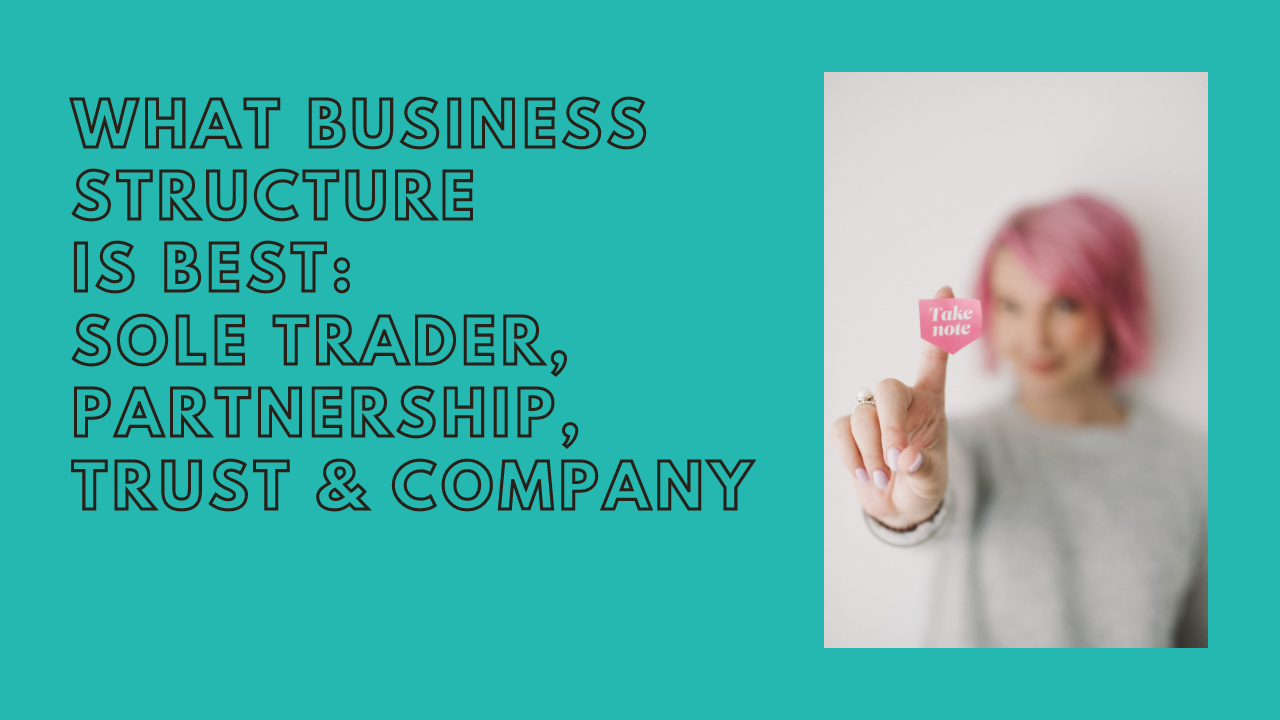What Business Structure is Best: Sole Trader, Partnership, Trust & Company

So you’re looking to get started with a business, or maybe you are already underway – congratulations (you’ve already made it further than most). Are you a sole trader? Do you have a trust? Maybe you want to start a company? Or a partnership?
No idea what the difference is? No worries!
I'm going to do my best to squish my years of study into one blog to help you understand the difference between the "structures" available to you. For more info, check out my online tax course which goes through this in much more depth. N
Here's a little table summarising what each structure offers:

What do I mean by these terms?
- Flexibility
How easily can you change what you are doing? Sole traders are the most flexible as there are very few commitments and very little is required to start and stop them. - Control
How much say do you have in decision making? Entering a partnership means sharing the decision making with another 1 or 2 (or more) people. If you are starting a company or unit trust it could mean sharing the decision making power with 10s, 100s or 1000s of people (if you’re thinking really big!). - Complexity
How many legal requirements and compliance obligations are there? For a company there are ASIC fees, company tax returns and many other complex requirements which may require professional help resulting in additional cost! - Tax Benefits
Better tax rates or flexible distributions? Discretionary trusts in some circumstances allow you to choose who gets the income, allowing you to share income between family members etc thus reducing overall tax expense (depending on heaps of stuff).
- Protection
What happens when things go wrong, who is liable? This is a very important aspect! Trusts with corporate trustees and companies are the only structures which allow you as the business owner to remain almost entirely separate from your business (i.e. limited liability).
This really is only the tip of the iceberg, but I hope it helps some of you and gives you a few new key words to Google. Do your "due diligence" as it is a lot easier to start a business then to change it. If you want some help deciding do not hesitate to reach out – I’ll be more than happy to have a chat!
xxx
Lauren
p.s. due diligence is often referred to as simply "DD" and it is the process of research, investigation, double-checking to make sure everything is as it needs to be.
p.p.s. chat to your tax accountant (or me!) if you want to know more or to change your structure


